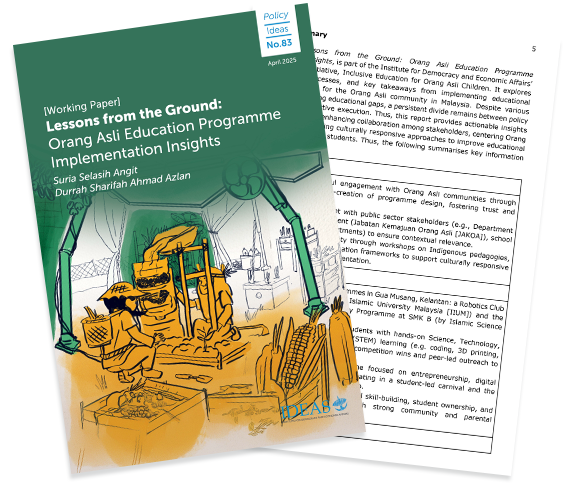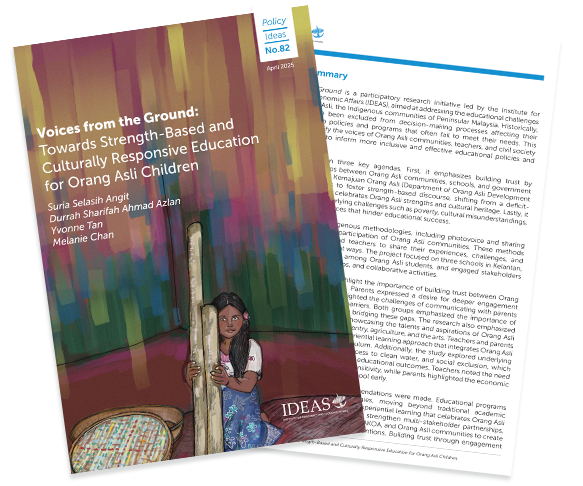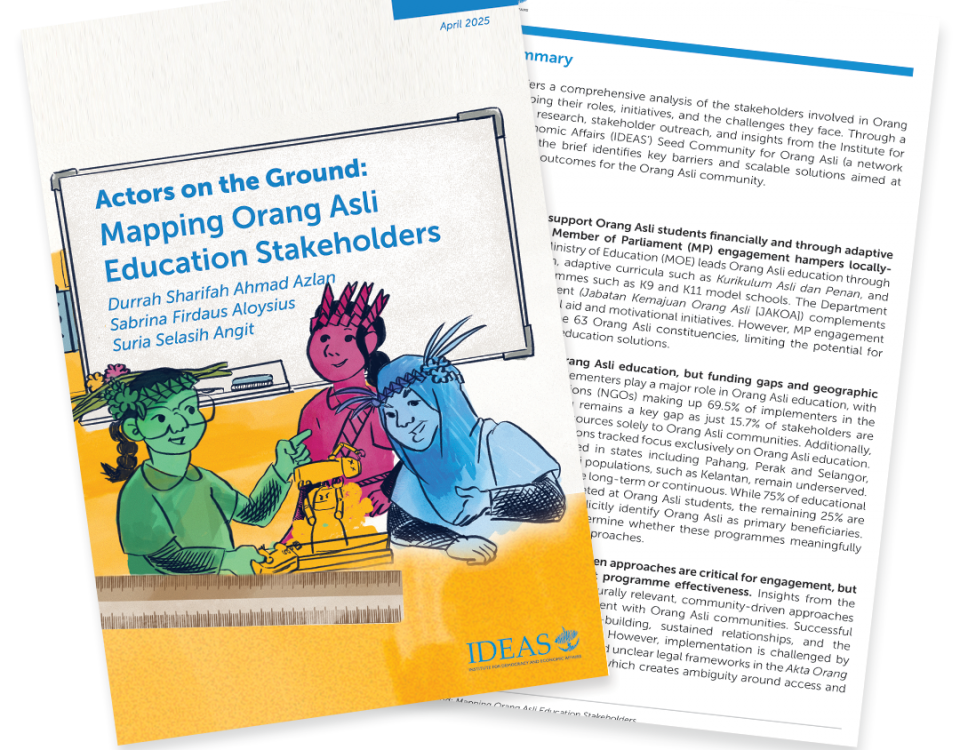
Policy Paper No 18
ICT in Classroom Learning: Exploring the Discrepancies Between Ideal Conditions and Current Malaysian Policy
Author: Jenny Gryzelius
In 2011, the Ministry of Education launched the 1BestariNet programme – an ambitious initiative to equip all government schools in Malaysia with high-speed internet connectivity, Chromebooks and, a Virtual Learning Environment. This programme was also an attempt to bridge the urban-rural digital divide in the country. The idea was to have ICT integrated as part of the teaching and learning processes in classrooms in order to enhance student outcomes. However, a closer look at the workings of the 1BestariNet programme unveils the shortcomings of a one-size-fits-all approach to planning and implementation of this initiative. The main weaknesses identified in this paper are: lack of teacher training on how to integrate ICT into pedagogy, inadequate internet speeds and connectivity, and minimal involvement of school leadership when implementing ICT policies into their schools, all of which lead to minimal usage of ICT by teachers in classrooms. In light of these weaknesses this paper recommends that schools need to tailor make their own ICT training programmes, to determine what bandwidth is possible for their condition and what kind of devices would be most beneficial for their student body.
Additionally, the paper recommends the following to enhance ICT use in Malaysian schools: 1. Enhance managerial autonomy for government schools to empower them to take control of the implementation process of ICT in education policies. 2. Provide clear guidelines and support for school based ICT needs assessments. 3. Provide an ICT implementation roadmap outlining how schools can tailor their own ICT implementation programmes, based on local needs. 4. Facilitate ICT training for teachers at various levels, from the most basic IT skills to advanced training of ICT as a pedagogical tool.


